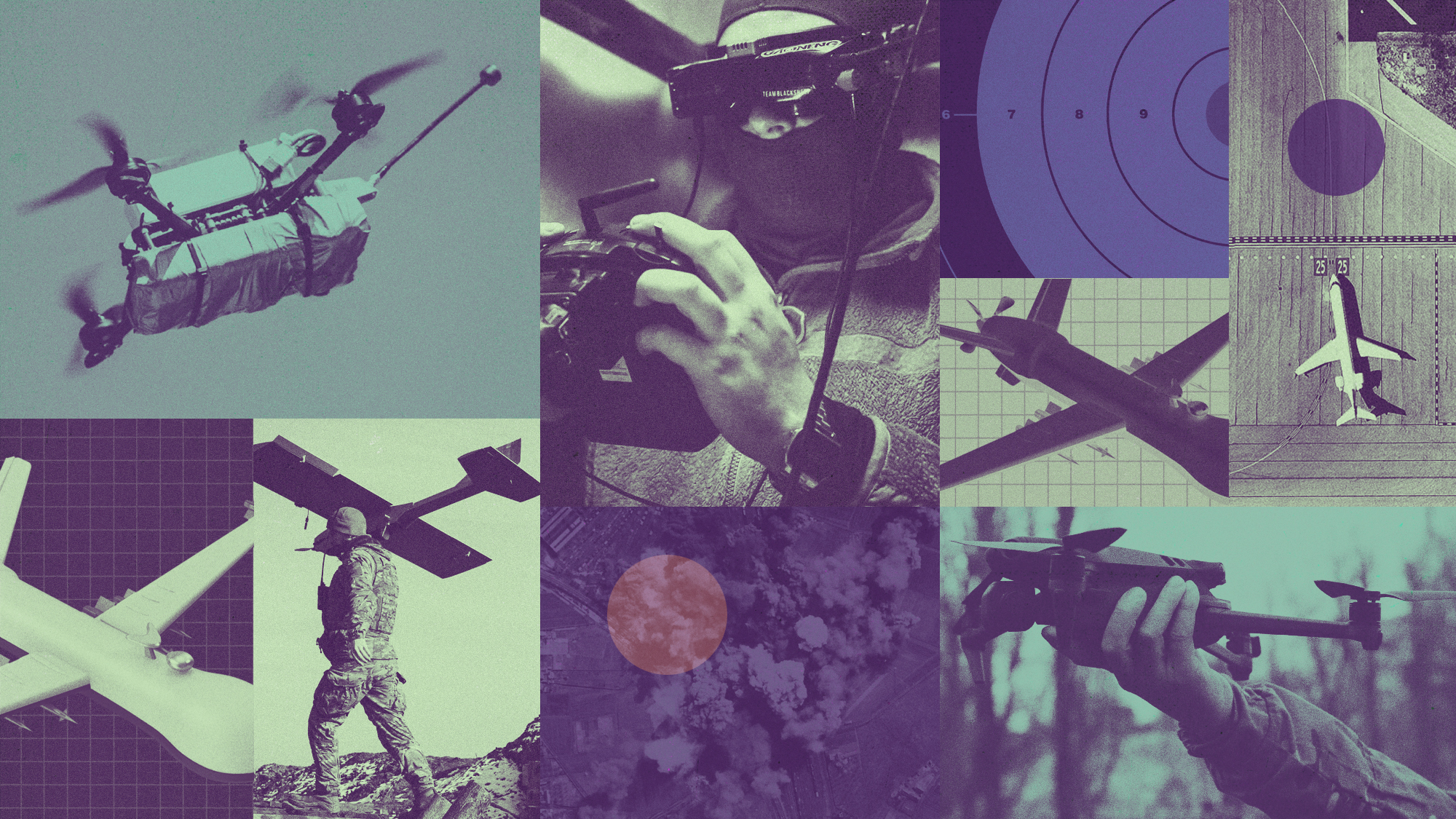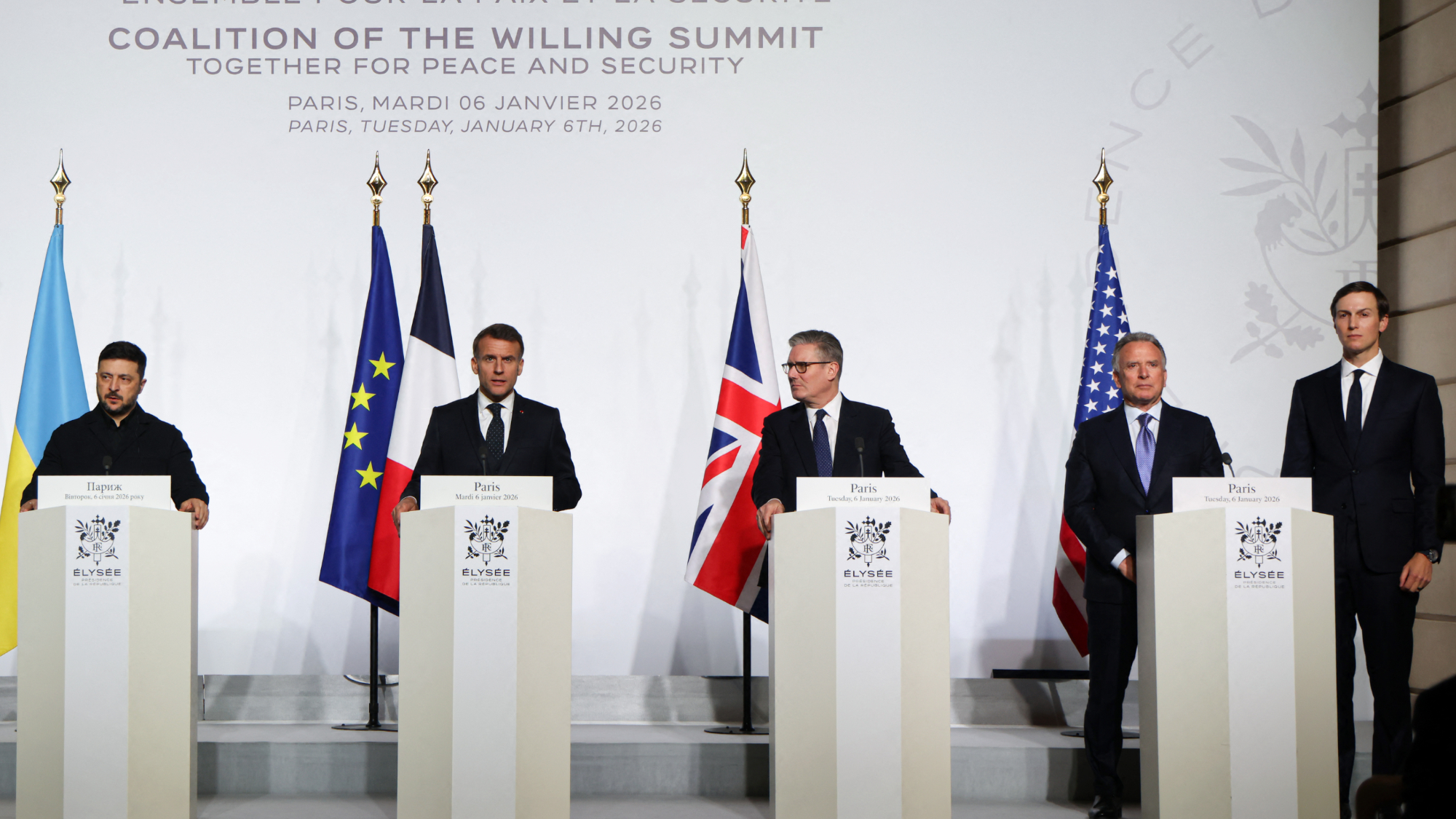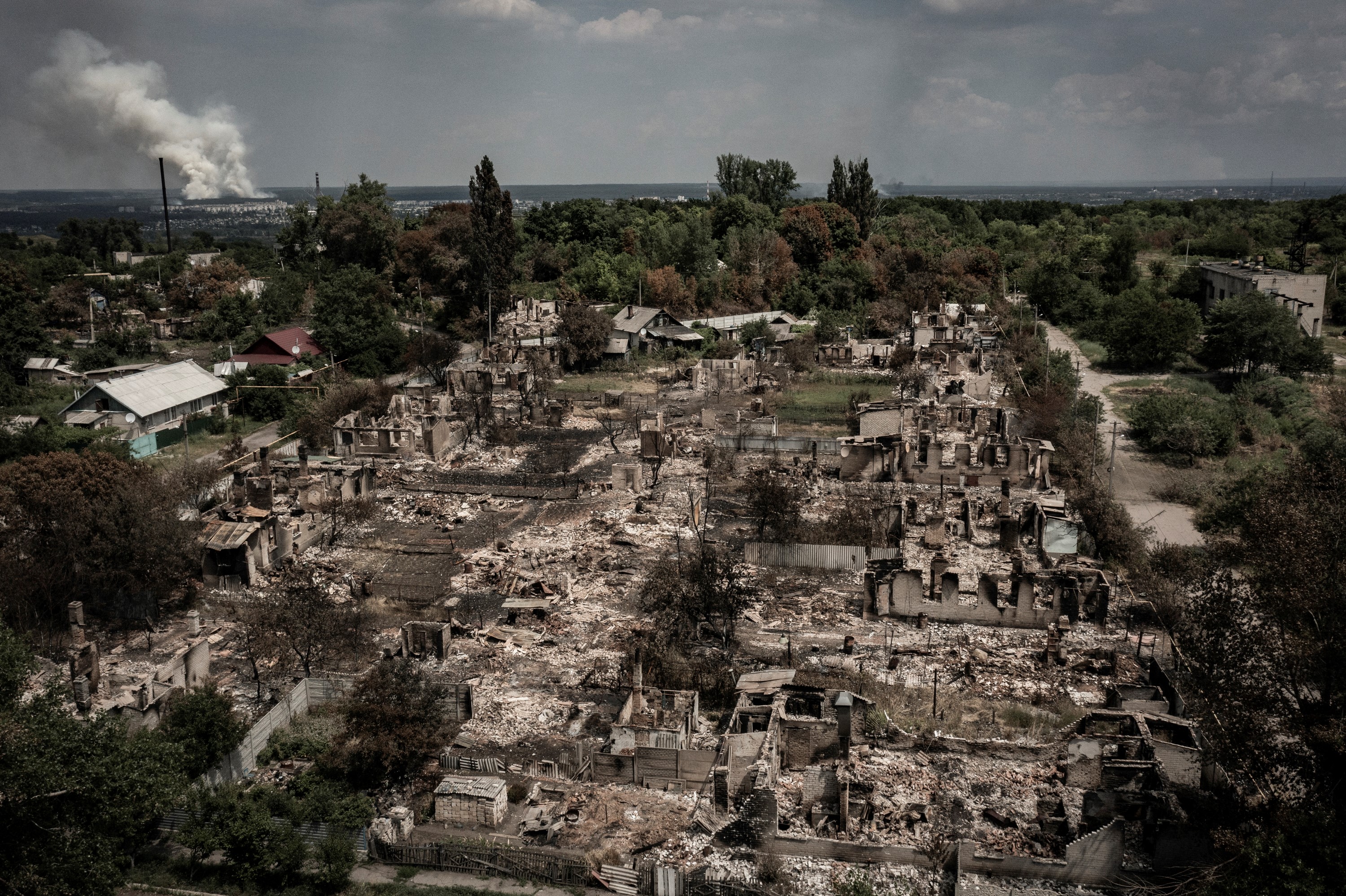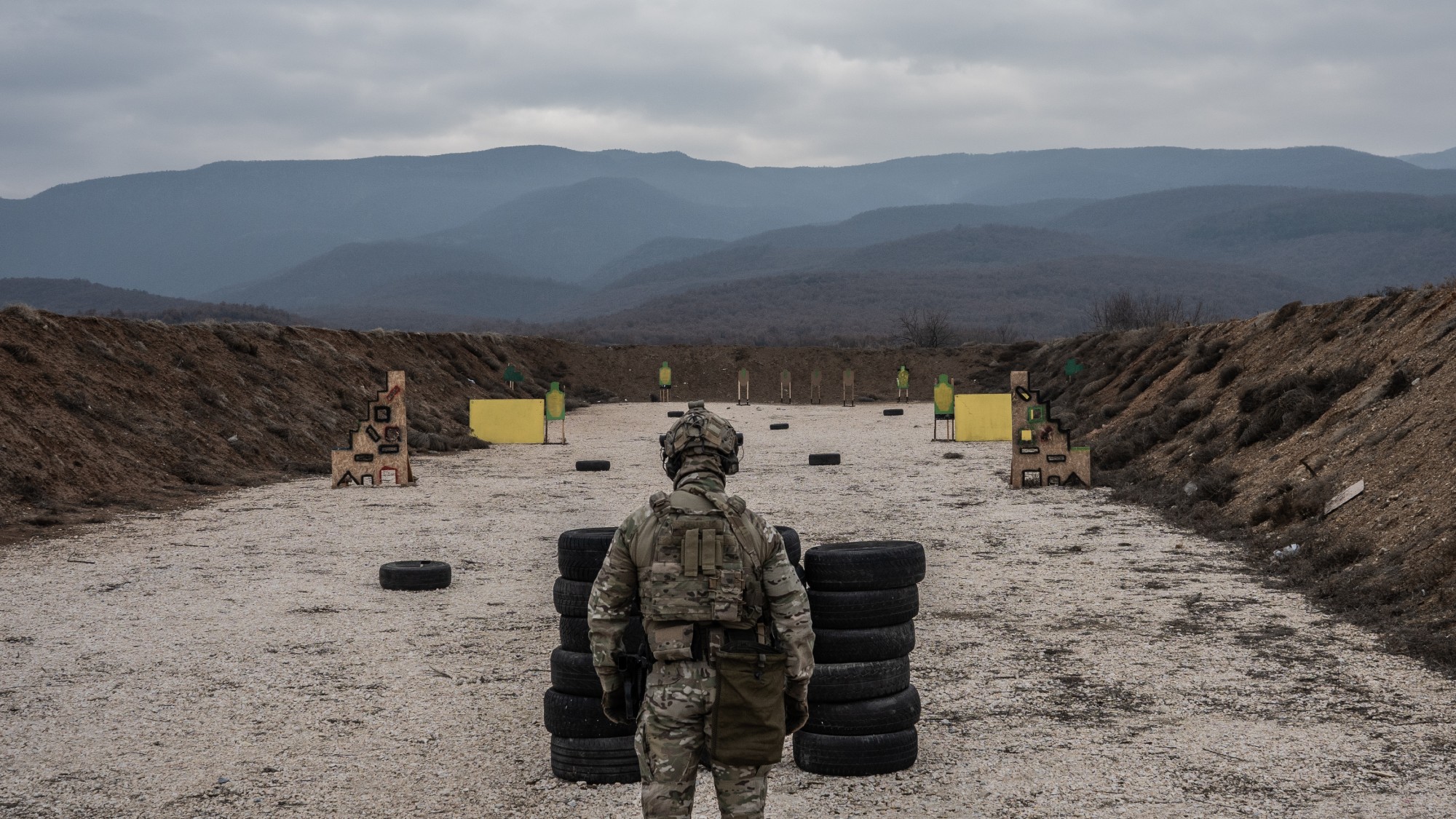Why are military experts so interested in Ukraine's drone attack?
The Zelenskyy government's massive surprise assault on Russian airfields was a decisive tactical victory — could it also be the start of a new era in autonomous warfare?


It took 18 months of planning and more than 100 carefully hidden attack drones smuggled to various clandestine staging sites deep inside Russian territory, waiting to be activated. And when the dust settled on June 1, Ukraine's audacious operation "Spider's Web" left dozens of Russian bombers smoldering on their airstrips in an unprecedented surprise attack.
While drones have increasingly played a role in 21st century warfare, "Spider's Web" is quickly being weighed by military analysts as a new and potentially precedent-setting expansion of unmanned combat tactics and capabilities — one which has not only altered the course of the ongoing Russo-Ukrainian conflict, but perhaps the future of war itself.
What did the commentators say?
The "strategic and symbolic" success of Ukraine's operation shows how the country has used drones in particular to "adapt and evolve" in its effort against Russia's "much larger army with more resources," said The New York Times. The scale and impact of the attack means similar long-range drone strikes are "now a commodity available to almost every nation state, and nonstate actor," so long as they have a "few million dollars and the desire to reach out and strike their adversary," said Australian Gen. Mick Ryan (Ret.), a senior fellow for military studies at the Lowy Institute, to the Times. The attack was "likely highly cost-effective," the Kyiv Independent said. The first-person-view drones believed to have been used in the operation can cost a few hundred dollars apiece, while the price tag for Russia's destroyed bombers likely "runs into the billions."
The Week
Escape your echo chamber. Get the facts behind the news, plus analysis from multiple perspectives.

Sign up for The Week's Free Newsletters
From our morning news briefing to a weekly Good News Newsletter, get the best of The Week delivered directly to your inbox.
From our morning news briefing to a weekly Good News Newsletter, get the best of The Week delivered directly to your inbox.
The attack may have been a brazen success, but the "means and technology to conduct an operation like this aren't that new," said Center for New American Security Senior Fellow Samuel Bendett to the Kyiv Independent. The potential for "wide-scale, low-end, localized drone attacks against prized aircraft sitting at airfields" has been a "brewing threat," said defense industry–focused publication The War Zone. Drone technology has "proliferated dramatically," while the "threshold requirements" for carrying out an operation like this have "dropped considerably." Ukraine's drone assault was a "really good example of just how quickly technology is changing the battlefield," said Army Chief of Staff Gen. Randy George at an AI conference yesterday, per DefenseScoop.
What next?
Ukraine's drone assault means Russia must now "devote more resources to protecting bombers and other valuable military assets" after having spent years leaving its assets "parked outside and easily visible, both for operational reasons and as part of nuclear-disarmament agreements with Washington around the end of the Cold War," said The Wall Street Journal.
Ukraine's advances in drone warfare often "outpace traditional U.S. defense contractors," said the Kyiv Post, with many tech firms "increasingly turning to Ukrainian drone makers for their frontline expertise." And it's not just corporate interests paying attention, either. This summer, Ukraine will host a group of soldiers from Denmark, training them in the art of widespread drone warfare, Defense News said. Meanwhile, a "new crop of testing facilities designed to test the small aircraft in war-like conditions" will begin operating across various European nations inspired to keep pace with Ukraine's drone innovations.
A free daily email with the biggest news stories of the day – and the best features from TheWeek.com
Rafi Schwartz has worked as a politics writer at The Week since 2022, where he covers elections, Congress and the White House. He was previously a contributing writer with Mic focusing largely on politics, a senior writer with Splinter News, a staff writer for Fusion's news lab, and the managing editor of Heeb Magazine, a Jewish life and culture publication. Rafi's work has appeared in Rolling Stone, GOOD and The Forward, among others.
-
 Do oil companies really want to invest in Venezuela?
Do oil companies really want to invest in Venezuela?Today’s Big Question Trump claims control over crude reserves, but challenges loom
-
 ‘Despite the social benefits of venting, people can easily overdo it’
‘Despite the social benefits of venting, people can easily overdo it’Instant Opinion Opinion, comment and editorials of the day
-
 What to know about the rampant Medicare scams
What to know about the rampant Medicare scamsthe explainer Older Americans are being targeted
-
 US nabs ‘shadow’ tanker claimed by Russia
US nabs ‘shadow’ tanker claimed by RussiaSpeed Read The ship was one of two vessels seized by the US military
-
 Trump’s Greenland threats overshadow Ukraine talks
Trump’s Greenland threats overshadow Ukraine talksSpeed Read The Danish prime minister said Trump’s threats should be taken seriously
-
 What will happen in 2026? Predictions and events
What will happen in 2026? Predictions and eventsIn Depth The new year could bring peace in Ukraine or war in Venezuela, as Donald Trump prepares to host a highly politicised World Cup and Nasa returns to the Moon
-
 All roads to Ukraine-Russia peace run through the Donbas
All roads to Ukraine-Russia peace run through the DonbasIN THE SPOTLIGHT Volodymyr Zelenskyy is floating a major concession on one of the thorniest issues in the complex negotiations between Ukraine and Russia
-
 Russia’s ‘weird’ campaign to boost its birth rate
Russia’s ‘weird’ campaign to boost its birth rateUnder the Radar Demographic crisis spurs lawmakers to take increasingly desperate measures
-
 US offers Ukraine NATO-like security pact, with caveats
US offers Ukraine NATO-like security pact, with caveatsSpeed Read The Trump administration has offered Ukraine security guarantees similar to those it would receive from NATO
-
 Europe sets 2027 deadline to wean itself from Russian gas
Europe sets 2027 deadline to wean itself from Russian gasIN THE SPOTLIGHT As negotiators attempt to end Russia’s yearslong Ukraine invasion, lawmakers across the EU agree to uncouple gas consumption from Moscow’s petrochemical infrastructure
-
 Is Europe finally taking the war to Russia?
Is Europe finally taking the war to Russia?Today's Big Question As Moscow’s drone buzzes and cyberattacks increase, European leaders are taking a more openly aggressive stance
